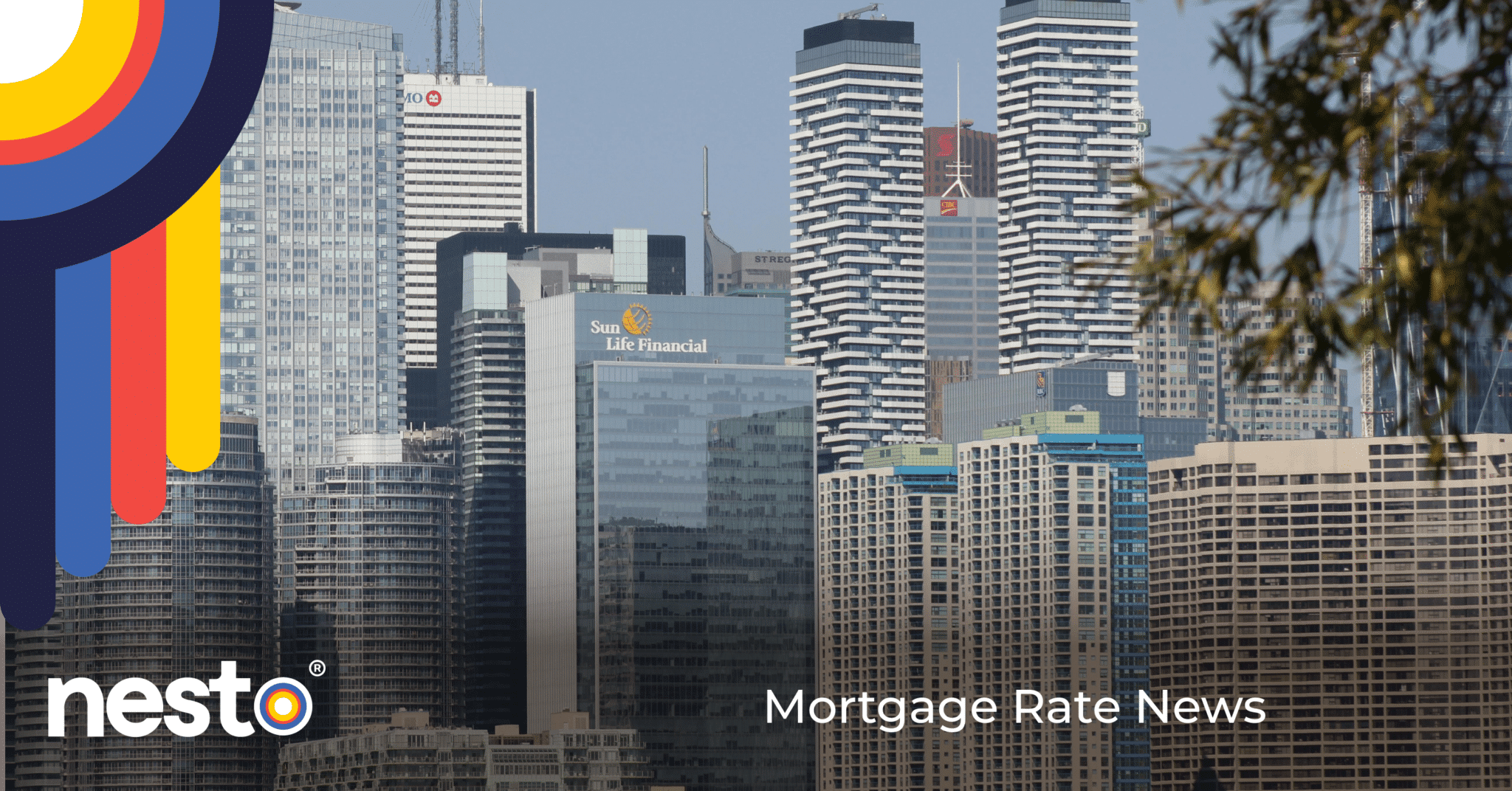Industry News #Featured articles
Industry News #Featured articles
How Tariff Threats and Bond Yields Could Impact Bank of Canada's Decision

Table of contents
As Canada braces for another Bank of Canada (BoC) rate cut, the latest tariff threats from the US are sending shockwaves through financial markets, particularly impacting bond yields and fixed mortgage rates. With trade tensions and political chaos in full swing, the financial landscape is shifting rapidly—leaving borrowers, homeowners, and investors scrambling to understand what comes next.
Trump’s Latest Tariff Retreat: What It Means for Borrowers
After weeks of mounting pressure from politicians, business leaders, and the stock market, President Donald Trump has paused new 25% tariffs on Canadian goods covered by the USMCA. The decision came after factory closure warnings, Wall Street jitters, and concerns over job losses rattled the administration.
When asked if the stock market’s downturn influenced his decision, Trump responded, “I’m not even looking at the market.” (Right—just like Canadians aren’t paying attention to mortgage rates before their next renewal). While this tariff delay lasts until April 2, further twists in this trade war saga are inevitable.
From a mortgage standpoint, the most severe tariffs—assuming they stick around longer than his latest press secretary—could:
- Lower mortgage rates in the short term as markets seek safety in government bonds, pushing down bond yields.
- Increase inflation and rates longer-term due to rising supply chain costs, opportunistic corporate pricing, a weakened Canadian dollar, and growing inflation expectations.
Risk-sensitive borrowers may consider a hybrid mortgage strategy, such as a short-term (2 or 4-year) fixed rate paired with a 5-year variable rate, allowing them to hedge interest rate risk. This aligns with:
- Canada’s average mortgage lifespan
- The next US midterm (in two years) or election cycle (in four years) could bring another shift in trade policy.
How Tariff Uncertainty Is Driving Market Volatility
The uncertainty surrounding tariffs and trade policy has already impacted the Canadian financial landscape:
- Canada’s 5-Year Bond Yield Drop – Canadian 5-year bond yield recently hit an almost 3-year low, reflecting investor concerns over a slowing economy.
- Bank Fixed-Rate Margins Are Shrinking – Canadian lenders have room to lower fixed mortgage rates, and many have already trimmed rates this week.
- Lenders Discounts on Floating Rates Continue Shrinking – Mortgage lenders are increasing their risk premiums by shrinking the discount from the prime rate they offer borrowers on variable and adjustable mortgage rates.
- Job Market Signals Softening Growth – StatsCan notes that full-time employment for those 25 years and older saw only a modest gain while total hours worked dropped, a key indicator for GDP growth.
The Bank of Canada’s Next Move: Will a Rate Cut Happen?
Despite all the tariff drama, markets are showing an almost 80% probability that the Bank of Canada will cut its policy rate at its next meeting on Wednesday, bringing Canada’s key lending rate to 2.75%—the mid-point of its neutral rate range.
Meanwhile, in the United States, inflation concerns will likely outweigh weak job numbers, given that tariffs—especially on China—will drive up prices. The Federal Reserve is unlikely to cut rates this month, prioritizing inflation control over economic stimulus. The bond futures market indicates that the Fed (FFR) rate cut is more likely to occur as soon as May or June.
We’re curious…
What Should Homebuyers and Homeowners Do?
With uncertainty surrounding tariffs and their impact on mortgage rates, Canadians should consider:
- Fixed-rate borrowers: If you’re locking in a fixed mortgage rate, closely watch mortgage rate forecasts and bond yields. Rates may drop further, but lenders may hesitate to fully pass on those discounts.
- Variable-rate borrowers: With a BoC rate cut expected, variable mortgage rates could be the most cost-effective option, but they come with rate fluctuation risks if inflation resurges.
- Renewals: A shorter-term fixed rate (2-4 years) could provide flexibility while securing a competitive rate.
Economic chaos never lasts—but thoughtful mortgage planning does. While Trump tariff’s latest retreat offers some relief, more policy twists and turns are likely. Borrowers should remain proactive, know their options, watch home prices and work with mortgage professionals to secure the best mortgage strategy.
Need mortgage guidance in this uncertain market? Contact nesto mortgage experts today and secure your best mortgage strategy with a side of low rates.
Why Choose nesto
At nesto, our commission-free mortgage experts, certified in multiple provinces, provide exceptional advice and service that exceeds industry standards. Our mortgage experts are non-commissioned, salaried employees who provide impartial guidance on mortgage options tailored to your needs and are evaluated based on client satisfaction and advice quality. nesto aims to transform the mortgage industry by providing honest advice and competitive rates using a 100% fully digital, transparent, seamless process.
nesto is on a mission to offer a positive, empowering and transparent property financing experience – simplified from start to finish.
Contact our licensed and knowledgeable mortgage experts to find your best mortgage rate in Canada.
Ready to get started?
In just a few clicks, you can see our current rates. Then apply for your mortgage online in minutes!















